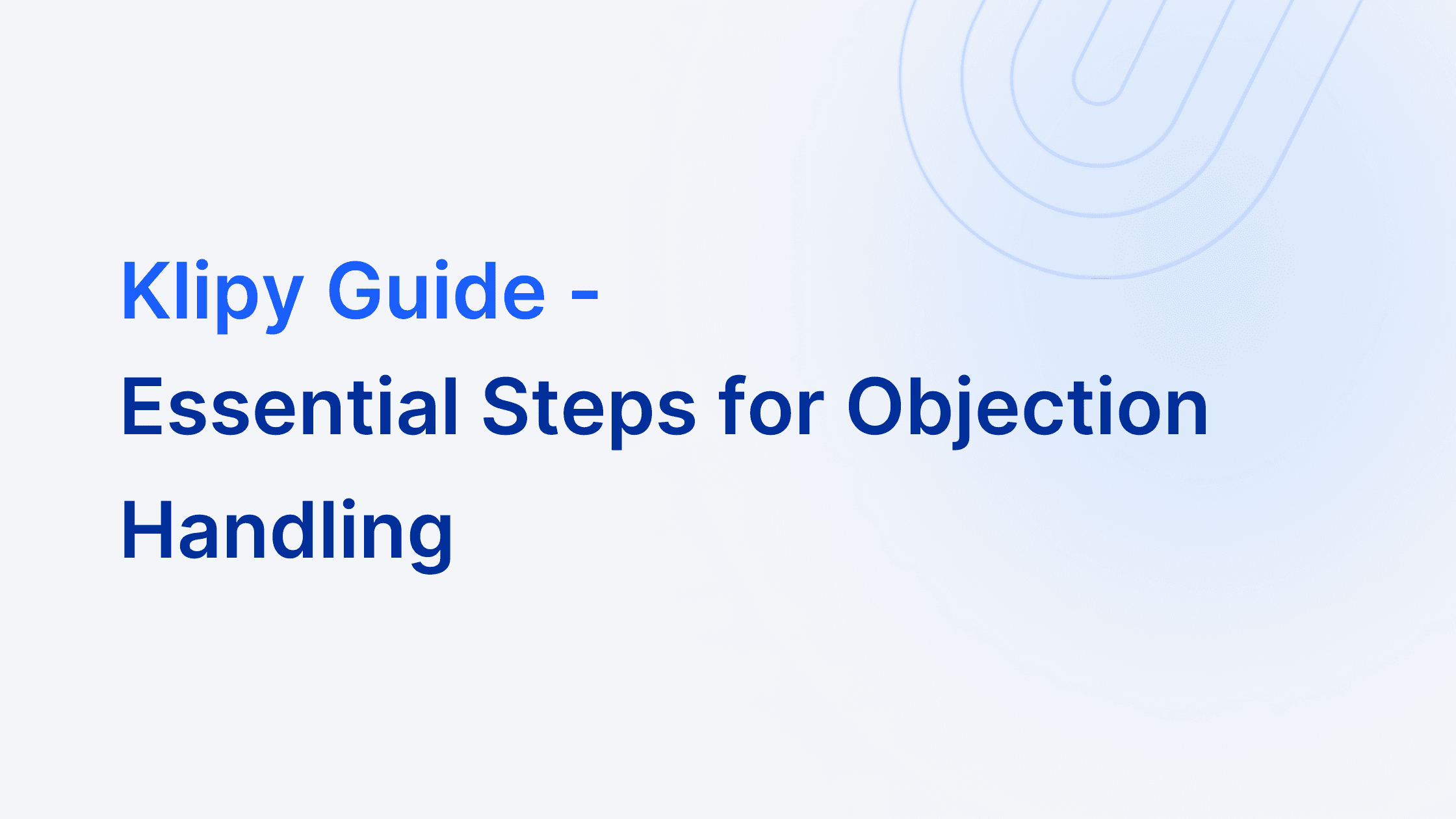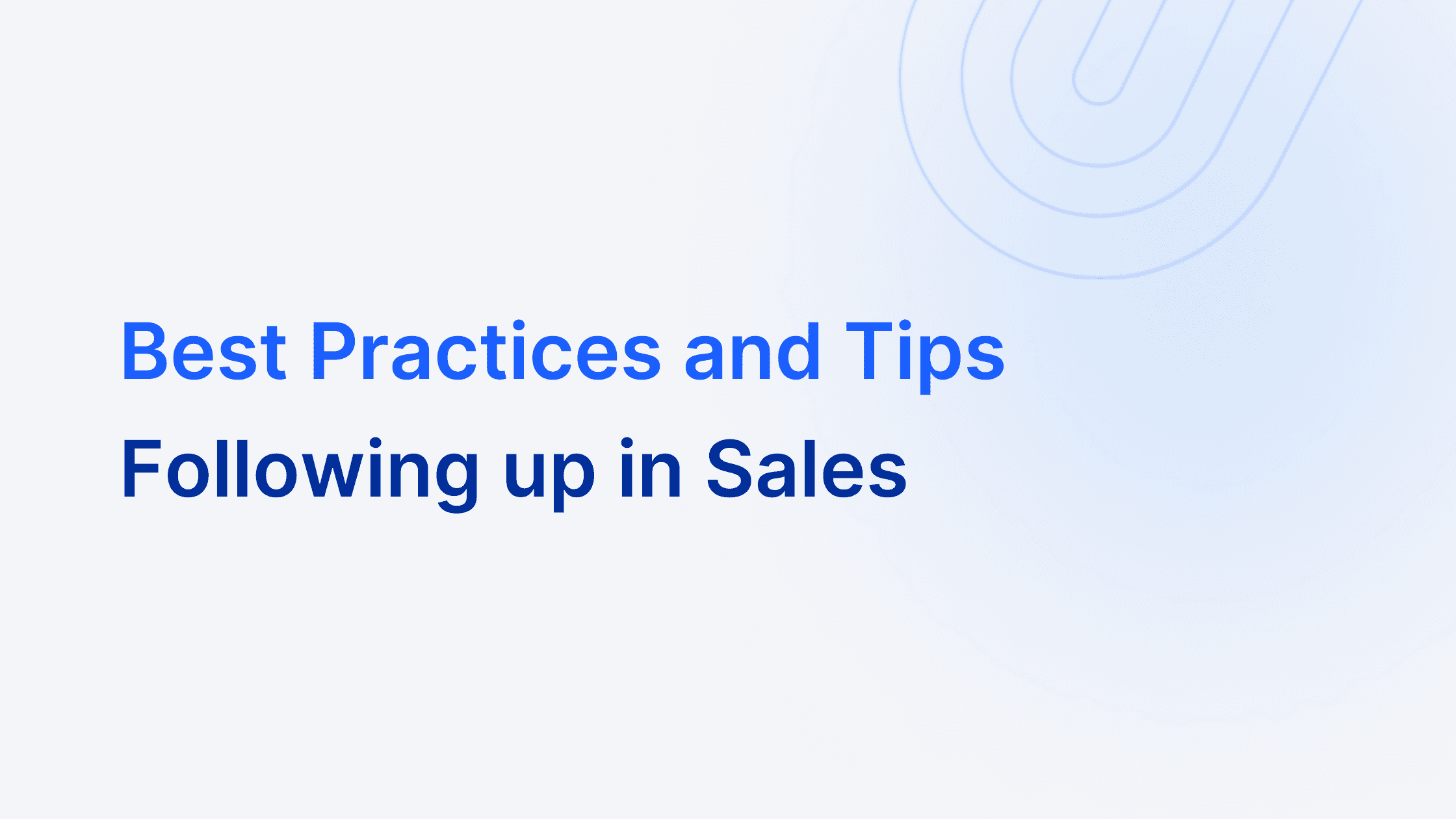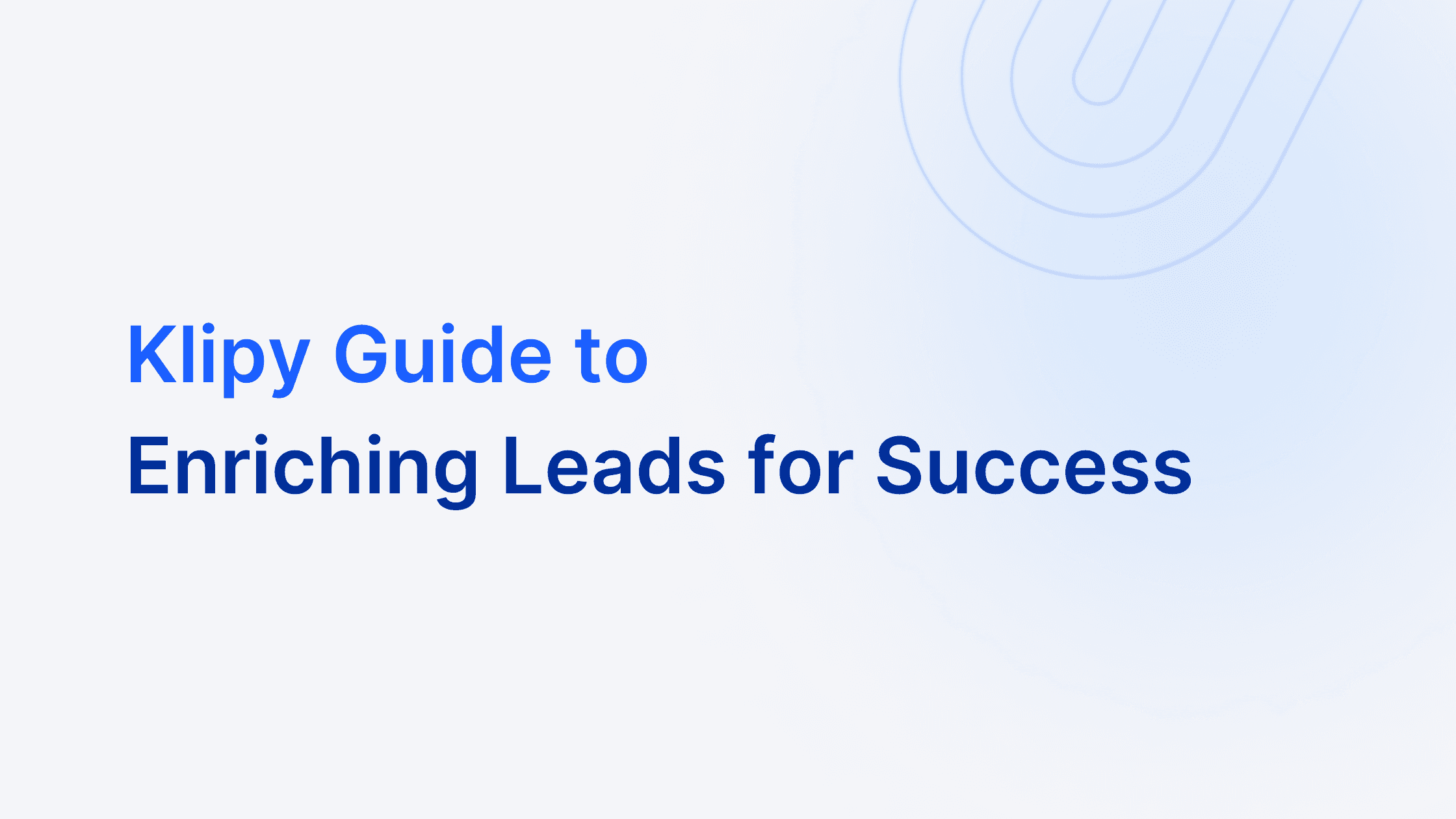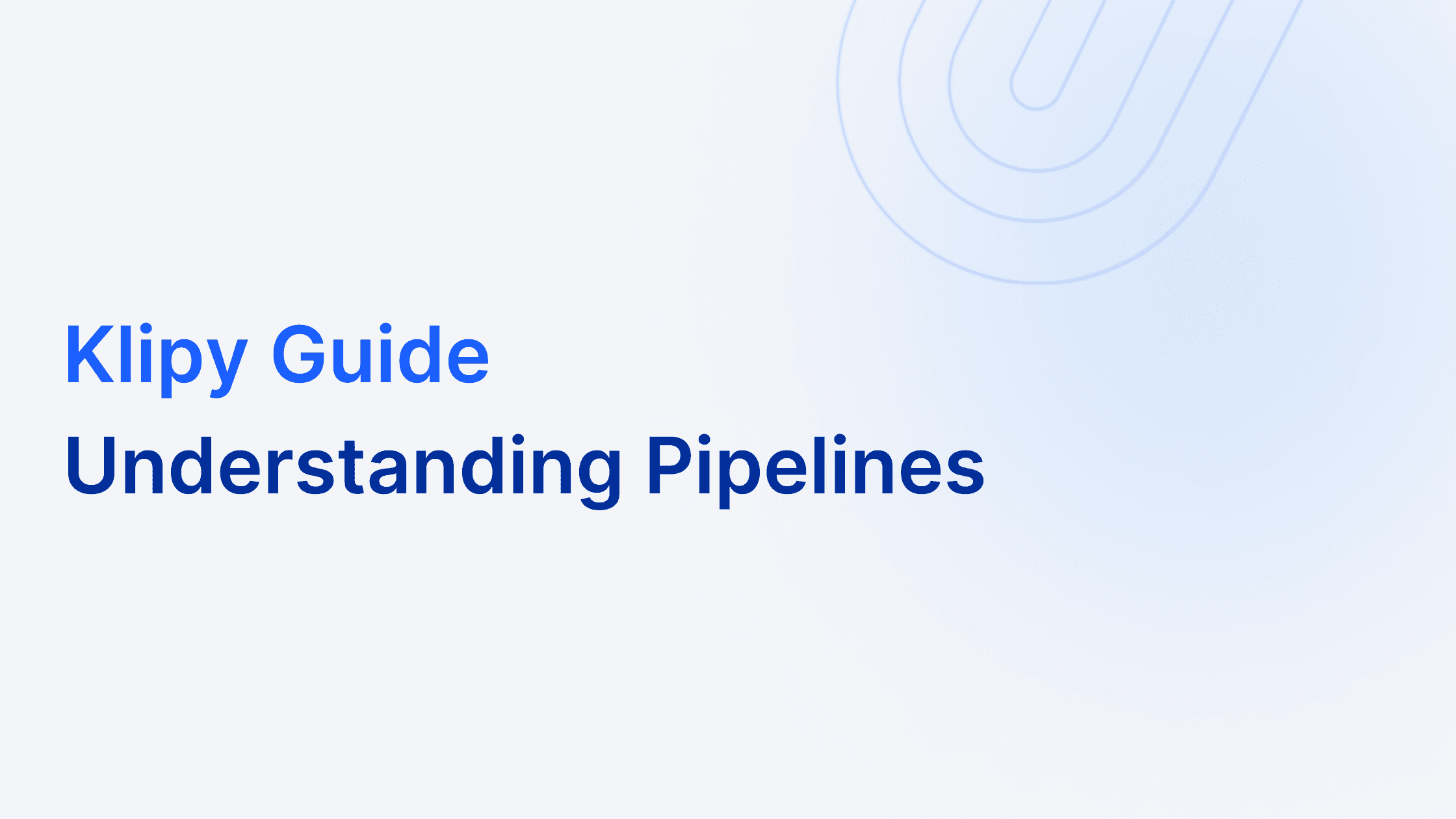Sales
Essential Steps and Tips for Objection Handling
Master objection handling to boost sales and build trust. Learn essential techniques and leverage AI-powered tools for success.
Why Objection Handling Matters
Objection handling is key for sales teams to increase conversions. It turns concerns into opportunities for dialogue. This skill can be the deciding factor in closing deals.
Effective objection handling goes beyond countering hesitations. It involves listening, empathizing, and offering tailored solutions. This approach builds trust and improves essential communication skills.
Why master objection handling?
Prevent Losses: Address objections directly to keep prospects engaged and reduce the risk of them choosing competitors.
Build Relationships: Use objections as chances to deepen understanding and strengthen client connections.
Improve Skills: Sharpen your ability to communicate effectively, turning objections into productive conversations.
Boost Conversions: By resolving concerns, you increase the chances of turning prospects into customers.
Our AI-powered features help streamline this process for your sales team. Real-time updates and shared records keep your team prepared to handle objections with confidence.
Understanding Objection Handling
Steps for Effective Objection Handling
Handling objections is crucial for sales success. Here's a five-step framework to navigate objections confidently:
Listen: Pay full attention to what the prospect is saying. Understanding their concerns is essential. Let them express all their points without interruption. Use this time to gather insights.
Ask Open-Ended Questions: Encourage dialogue by asking questions that require more than a yes or no answer. This helps uncover the root of their objections. For example, "What specific concerns do you have about our product?"
Solve the Objection: Address their concerns directly. Use empathy and provide clear solutions. Show how your offering aligns with their needs. Highlight features like Klipy’s AI-enhanced CRM that streamlines processes and provides value.
Confirm the Solution: Ensure that the prospect agrees with your solution. Ask for their feedback to confirm understanding. This builds trust and ensures clarity. You might say, "Does this solution meet your expectations?"
Move On: Transition smoothly to the next steps in your sales process. Keep the momentum going by focusing on benefits and outcomes. Reinforce confidence with real-time updates and shared records from Klipy.
For more tips on refining your sales strategy, consider creating a sales playbook tailored for small businesses, which can centralize best practices and enhance team alignment.
Use frameworks like LAER (Listen, Acknowledge, Explore, Respond) to structure your approach. These strategies help you tackle objections effectively and enhance your sales efficiency.
Using Technology in Objection Handling
Technology can transform how sales teams handle objections. AI assistants and simple CRM systems like Klipy make objection handling efficient and effective.
AI helps analyze conversations, offering insights into client needs. This means sales teams can tailor their responses, aligning with prospect interests and increasing conversion rates.
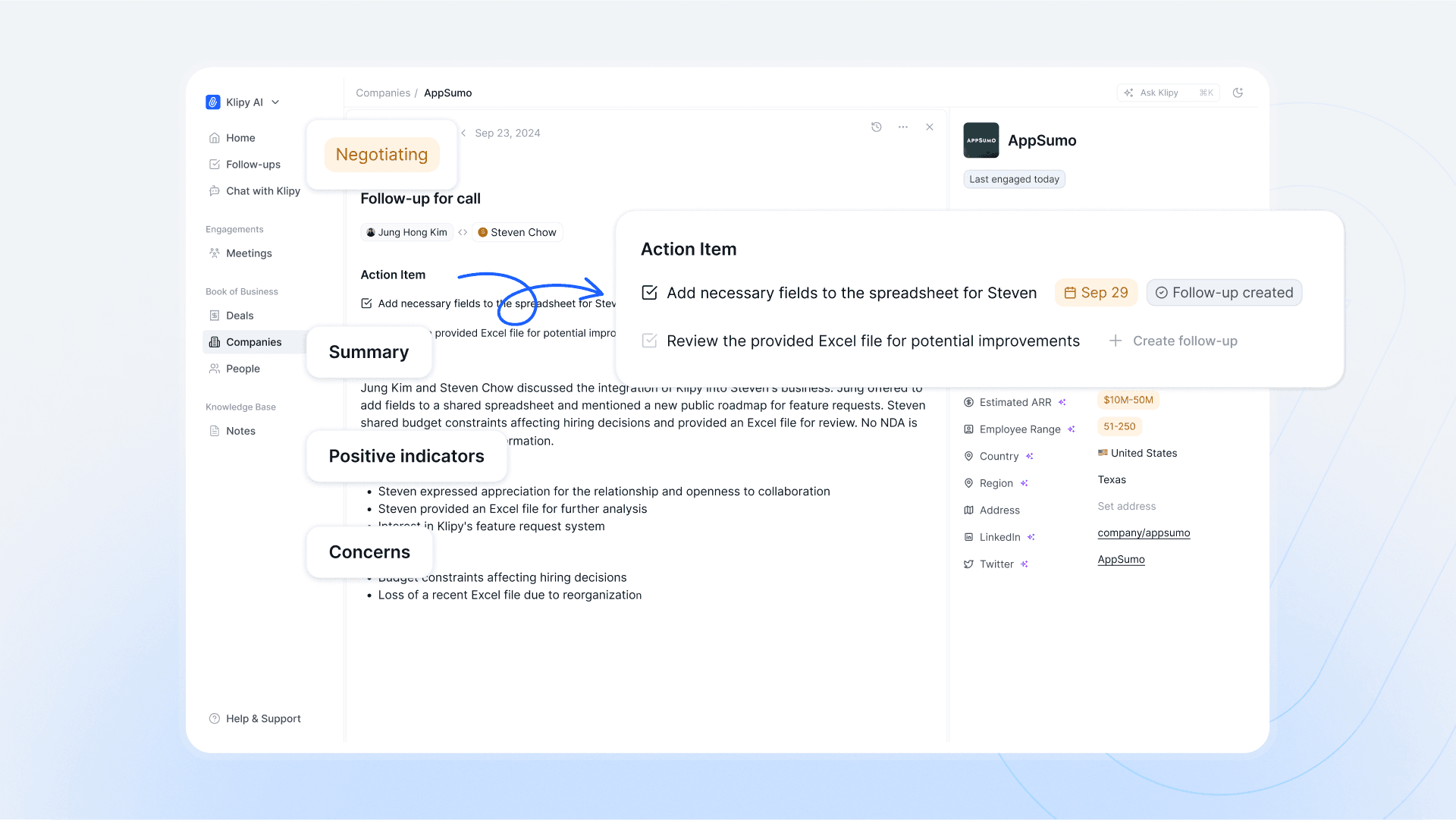
Klipy's CRM provides:
Real-Time Updates: Keep your team informed with the latest client data. This ensures everyone is on the same page and ready to address objections promptly.
Shared Records: Access to shared notes and interactions that foster team collaboration. Everyone can contribute to and benefit from collective knowledge.
AI-Enhanced Features: Automate data entry and enrich contact details. This streamlines your process, letting you focus on resolving objections rather than administrative tasks. For more on how automation can improve efficiency, explore the financial impacts of manual data entry.
Email Integration: Automatically sync emails, ensuring nothing slips through the cracks. Stay organized and responsive to client concerns.
Using technology like Klipy means sales teams can act swiftly and decisively. By having critical information at their fingertips, they enhance communication, build trust, and improve sales outcomes.
Key Takeaways for Better Objection Handling
Mastering objection handling boosts sales team performance. Approach objections with curiosity, empathy, and preparation. Curiosity helps you grasp client concerns. Empathy builds deeper connections with prospects. Preparation equips you for challenges.
Frameworks like LAER (Listen, Acknowledge, Explore, Respond) offer a solid foundation. They guide you through the process, turning objections into opportunities.
Our AI-powered insights make objection handling efficient. Real-time updates keep your team informed. Shared records ensure everyone stays aligned.
Here are tips to help you succeed:
Stay Curious: Uncover the root of objections.
Be Empathetic: Show genuine interest in solving concerns.
Prepare Thoroughly: Anticipate objections and ready solutions.
Leverage Technology: Use our tools for smooth objection handling.
Practice Active Listening: Focus on client words without interruption.
These strategies improve communication and build trust with clients. You'll close more sales as a result. Keep refining your skills for better outcomes.
More from the blog
